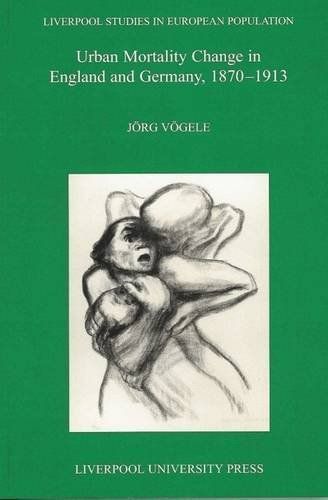
Urban Mortality Change in England and Germany, 1870-1913
In a careful and well-written analysis, Vögele focuses attention on the question of when towns ceased to be relatively unhealthy compared with rural areas, with useful discussions of disease categories and issues concerning the different structuring of data in the British and German national contexts. Although the focus is on urban health conditions and epidemic control, these are related to a wide range of social factors. The text has valuable comparable insights, for example on urbanization and professionalization, and provides a lucid exposition of some major theories concerning the social determinants of diseases. With a sure grasp of mortality trends and associated socio-economic processes, Vögele presents a convincing picture from the early modern period of age-specific mortality trends. This is an important comparative historical study of mortality, in which the author offers an impressive synthesis of complex data and issues concerning rapid urbanization and social conditions. It will be of great interest to British and German historians as well as to those concerned with economic history, demographic history and the history of medicine and it will be a pivotal reference work for those seeking to apply demographic expertise to the understanding of changing disease patterns.